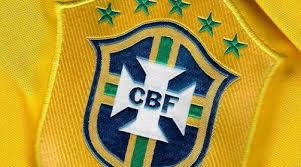By Samindra Kunti
December 8 – Brazil’s CBF wants to introduce a copy of UEFA’s Financial Fair Play into the Brazilian domestic league in a bid to clean up the wobbly finances of Brazilian clubs.
Ever since the introduction of the national championship in 1971 Brazilian football has been marred by corruption, dwindling attendances and an out-of-sync calendar: at board-level self-serving football administrators install little fiefdoms; poor infrastructure and a plethora of state-championships further undermine the local game.
Today the Brazilian game is in a grim state. Brazil’s unforgiving 7-1 defeat to Germany at the 2014 FIFA World Cup didn’t serve as a wakeup call for the Brazilian Football Confederation (CBF), where the idea of modernisation has generaly been resisted. In May Former CBF chairman Jose Maria Marin was arrested in raids in Zurich, which opened a pandora’s box of corruption with Brazil right in the middle of much of it. Last week the FBI indicted current CBF president Marco Polo Del Nero.
Meanwhile Brazilian clubs remain mired in public and private debt, hemorrhaging players to foreign clubs and average gates of just 17,000 during the domestic season. The Brazilian government is trying to remedy the situation with medida provisoria 671, which will allow for the refinancing of Brazilians club debts, but demands better management and more transparency from the clubs.
“It’s a historical problem of management,” Amir Somoggi, a finance and marketing consultant who works with some of Brazil’s biggest soccer clubs, told Insideworldfootball. “The football part, notwithstanding its many deficiencies, is doing reasonably well, but the budgeting, spending and lack of revenue are the big problems.”
“In theory medida provisoria 671 can help, but it has to implement a more business-oriented vision,” continued Somoggi. “That a maximum of 80% of the annual gate receipts, up from 70%, can be spent on professional football allows the clubs to spend even more than today.”
Now the CBF want to turn around the tide with new rules and introduce a system of financial fair play to check and balance the books of Brazilian football clubs – using UEFA’s financial Fair Play as a blueprint. Brazil’s governing body envisages a limit on debts incurred by the clubs with more transparent and sound financial policies.
Contact the writer of this story at moc.l1745174595labto1745174595ofdlr1745174595owedi1745174595sni@i1745174595tnuk.1745174595ardni1745174595mas1745174595

